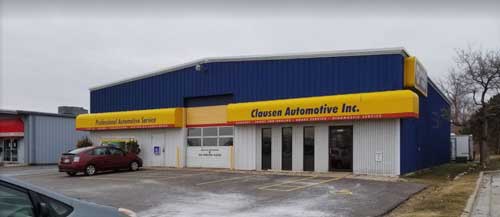When do car struts need to be replaced?
Signs of Failing Car Shocks and When Do Car Struts Need To Be Replaced
Maintaining a smooth and comfortable ride is crucial for your driving experience's safety and enjoyment. Car shocks and struts play a significant role in ensuring a stable and controlled journey. However, these vital components can wear out over time, leading to a compromised driving experience. This article will explore the signs of failing shocks and discuss when do car struts need to be replaced.
Signs of Failing Car Shocks
1. Uneven Tire Wear
One of the primary indicators of failing shocks is uneven tire wear. Notice excessive wear on your tires' inside or outside edges. It may be due to compromised shock absorbers Failing to distribute the vehicle's weight evenly, leading to uneven tire contact with the road.
2. Excessive Bouncing
When driving over bumps or potholes, your car's shocks absorb the impact. If you experience excessive bouncing or a bumpy ride, it suggests that the wonders are no longer effectively dampening the suspension movement.
3. Longer Braking Distances
Faulty shocks affect your vehicle's braking performance. As the shocks deteriorate, they fail to keep the tires in constant contact with the road, reducing traction and increasing the stopping distance.
4. Nose Dives During Braking
When applying the brakes, the car's weight shifts. Shocks help to control this weight transfer, preventing the front of the vehicle from "diving" excessively.
When do car struts need to be replaced?
1. Leakage
Car struts can develop leaks over time. If you observe oil or hydraulic fluid seeping out, it clearly shows malfunctioning support. Leaking struts compromise the ability to absorb shocks, affecting the overall stability and handling of the vehicle.
2. Excessive Wear or Damage
Struts have a limited lifespan and can wear out over time. If you notice visible signs of damage, such as dents, corrosion, or bent components, it is crucial to have it replaced promptly. Continuing to drive with damaged struts can lead to further suspension issues and potential safety hazards.
Consequences of Consistently Driving with Bad Shocks
1. Poor Handling and Stability
Failing shocks diminish the vehicle's ability to maintain stable contact with the road resulting in reduced handling capabilities and an overall decrease in stability. Cornering and maneuvering may become more challenging, increasing the risk of accidents.
2. Increased Tire Wear
Bad shocks can cause uneven tire wear, reducing their lifespan. Inconsistent tire contact with the road surface can lead to premature deterioration, requiring frequent replacements and additional expenses.
3. Compromised Braking Performance
Worn-out shocks can negatively impact your vehicle's braking abilities reducing efficiency and potentially increasing the risk of collisions, especially in emergencies.
Conclusion
Inspecting and maintaining shocks and struts is crucial for a safe and comfortable driving experience. Be vigilant for the warning signs of failing shocks and promptly replace worn-out car struts to avoid compromising your safety and the longevity of your vehicle's suspension system.
Want to know more about when do car struts need to be replaced? Contact our ASE Certified Technicians at Clausen Automotive, The Hybrid Shop, for more information about car shocks and struts and to schedule an appointment. Since 1975, our family-owned auto shop has proudly served vehicle owners in Madison, WI, and the surrounding communities.

Signs of Failing Car Shocks and When Do Car Struts Need To Be Replaced
Maintaining a smooth and comfortable ride is crucial for your driving experience's safety and enjoyment. Car shocks and struts play a significant role in ensuring a stable and controlled journey. However, these vital components can wear out over time, leading to a compromised driving experience. This article will explore the signs of failing shocks and discuss when do car struts need to be replaced.
Signs of Failing Car Shocks
1. Uneven Tire Wear
One of the primary indicators of failing shocks is uneven tire wear. Notice excessive wear on your tires' inside or outside edges. It may be due to compromised shock absorbers Failing to distribute the vehicle's weight evenly, leading to uneven tire contact with the road.
2. Excessive Bouncing
When driving over bumps or potholes, your car's shocks absorb the impact. If you experience excessive bouncing or a bumpy ride, it suggests that the wonders are no longer effectively dampening the suspension movement.
3. Longer Braking Distances
Faulty shocks affect your vehicle's braking performance. As the shocks deteriorate, they fail to keep the tires in constant contact with the road, reducing traction and increasing the stopping distance.
4. Nose Dives During Braking
When applying the brakes, the car's weight shifts. Shocks help to control this weight transfer, preventing the front of the vehicle from "diving" excessively.
When do car struts need to be replaced?
1. Leakage
Car struts can develop leaks over time. If you observe oil or hydraulic fluid seeping out, it clearly shows malfunctioning support. Leaking struts compromise the ability to absorb shocks, affecting the overall stability and handling of the vehicle.
2. Excessive Wear or Damage
Struts have a limited lifespan and can wear out over time. If you notice visible signs of damage, such as dents, corrosion, or bent components, it is crucial to have it replaced promptly. Continuing to drive with damaged struts can lead to further suspension issues and potential safety hazards.
Consequences of Consistently Driving with Bad Shocks
1. Poor Handling and Stability
Failing shocks diminish the vehicle's ability to maintain stable contact with the road resulting in reduced handling capabilities and an overall decrease in stability. Cornering and maneuvering may become more challenging, increasing the risk of accidents.
2. Increased Tire Wear
Bad shocks can cause uneven tire wear, reducing their lifespan. Inconsistent tire contact with the road surface can lead to premature deterioration, requiring frequent replacements and additional expenses.
3. Compromised Braking Performance
Worn-out shocks can negatively impact your vehicle's braking abilities reducing efficiency and potentially increasing the risk of collisions, especially in emergencies.
Conclusion
Inspecting and maintaining shocks and struts is crucial for a safe and comfortable driving experience. Be vigilant for the warning signs of failing shocks and promptly replace worn-out car struts to avoid compromising your safety and the longevity of your vehicle's suspension system.
Want to know more about when do car struts need to be replaced? Contact our ASE Certified Technicians at Clausen Automotive, The Hybrid Shop, for more information about car shocks and struts and to schedule an appointment. Since 1975, our family-owned auto shop has proudly served vehicle owners in Madison, WI, and the surrounding communities.


